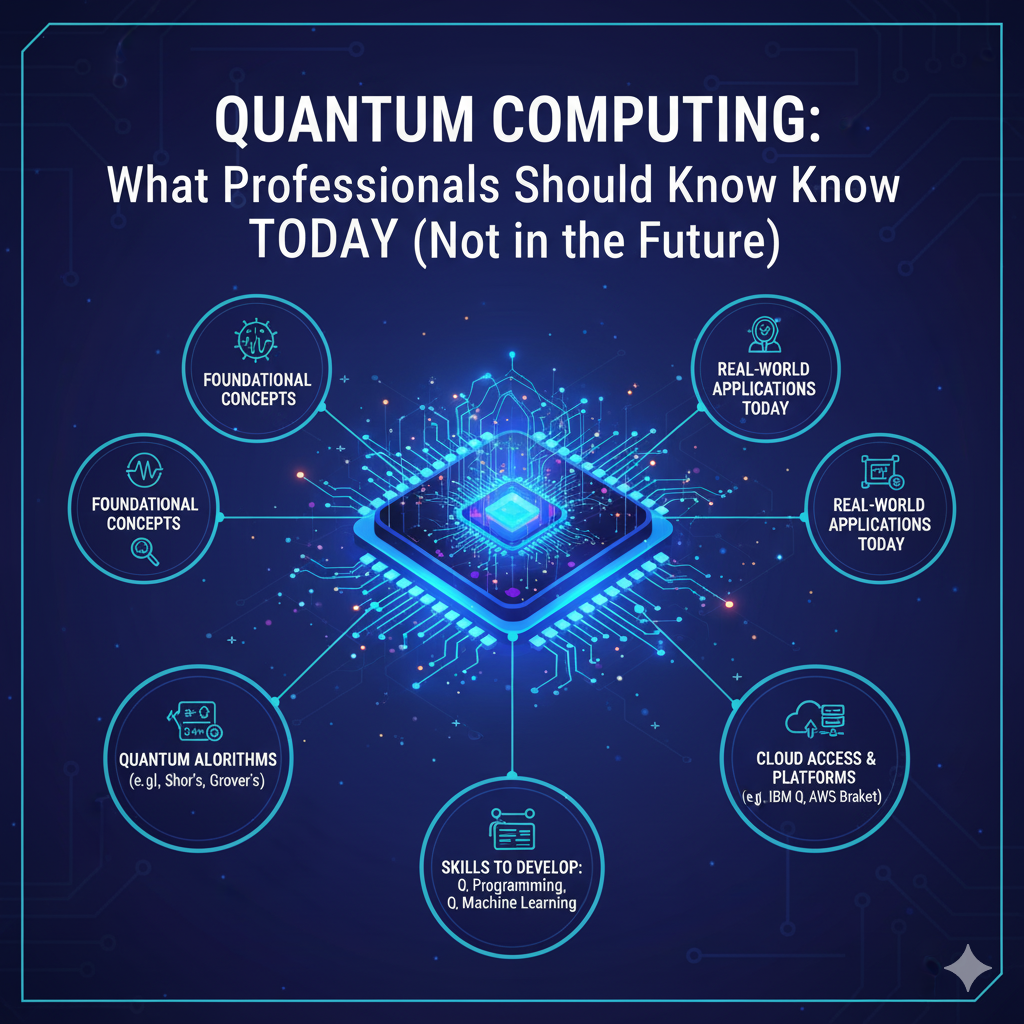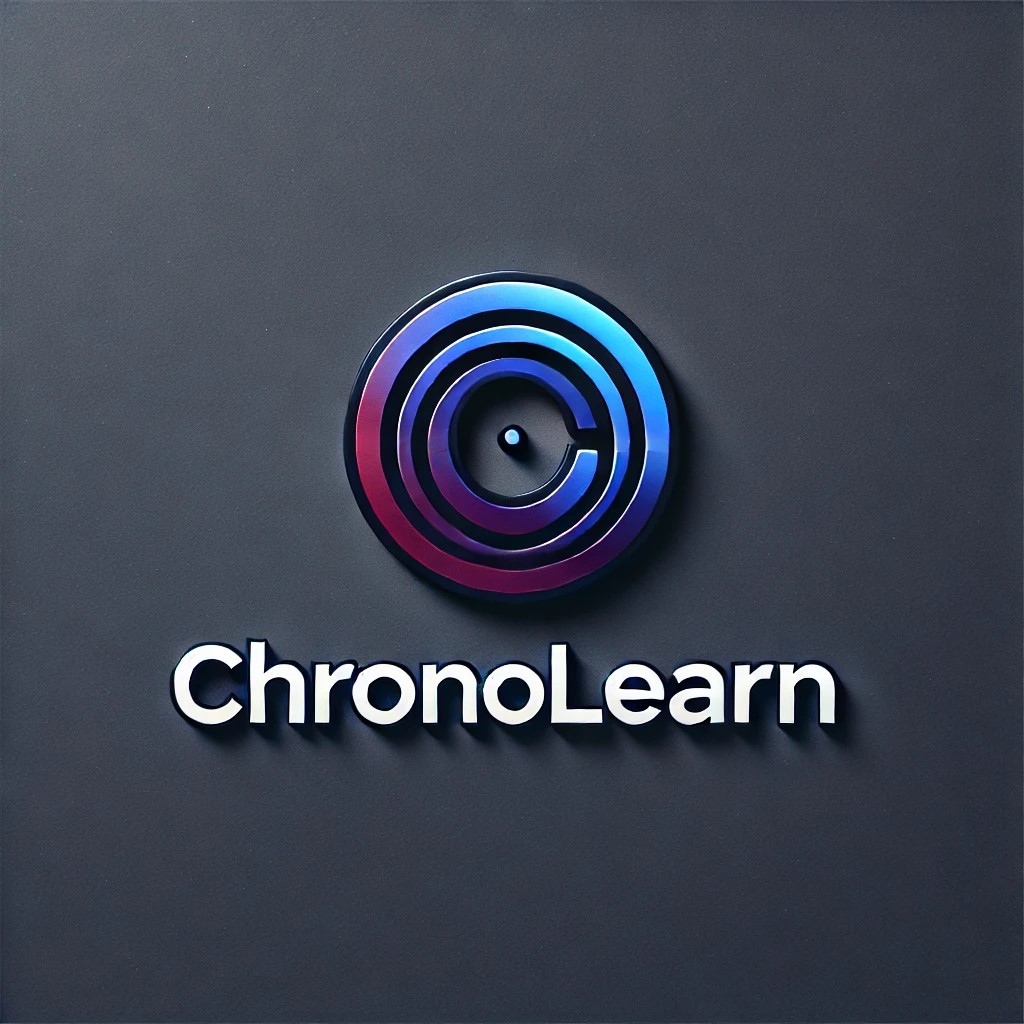
Quantum Computing: What Professionals Should Know Today (Not in the Future)
Quantum computing has moved from science fiction to the cusp of practical relevance—potentially within the next few years. According to major companies like Google, real-world quantum applications might emerge within five years. Reuters This means professionals today should not wait to prepare—they must act now if they want to be part of this emerging frontier.
In this blog, we’ll cover:
-
What quantum computing is and how it works
-
Where it’s already being applied
-
Certifications & training to get ahead
-
Career paths and how you should prepare
📚 What Is Quantum Computing?
At its core, quantum computing uses quantum-mechanical phenomena such as superposition and entanglement to process information in ways classical computers cannot. In a classical computer, bits represent either 0 or 1. In a quantum computer, a qubit can represent 0 and 1 simultaneously (or many states) thanks to superposition. Encyclopedia Britannica+1
Furthermore, when qubits become entangled, the state of one can be instantly correlated with the state of another, no matter the distance—a property that quantum algorithms leverage for speed and complexity.
Nevertheless, important challenges remain: maintaining coherence (the fragile quantum state), error correction, scaling qubit counts, cooling requirements, etc. NIST
So while quantum computing is still emerging, the building blocks are in place—and many companies are investing heavily now.
🌐 Key Applications & Why They Matter
Quantum computing is not yet replacing classical computing broadly, but in specific domains it offers early advantages. Here’s where the action is:
-
Optimization problems: Processes like route optimization, supply-chain logistics, power grid efficiency, manufacturing workflows can benefit from quantum algorithms. IEEE Spectrum+1
-
Machine learning & data analysis: Some quantum algorithms have shown the ability to accelerate pattern recognition or complex simulations, opening up new possibilities in AI and analytics. TimesPro
-
Chemistry & materials science: Quantum simulations are especially promising for modelling molecules, designing new materials, discovering drugs. Classical computers struggle with these due to combinatorial explosion. arXiv
-
Cryptography & security: Quantum computers pose both a threat (e.g., breaking current encryption) and a solution (quantum key distribution, quantum-safe algorithms). SpinQ
A consulting firm note: quantum computing isn’t only about “huge wins” but can yield 5–10% efficiency gains in industries like chemicals or automotive—worth billions given scale. McKinsey & Company
These use-cases mean for professionals: even if quantum isn’t everywhere tomorrow, knowing the basics and implications now gives you a strategic advantage.
🎓 Certifications & Training You Should Consider
To position yourself for quantum-era roles, certifications and structured training matter. Some key credentials:
-
IBM’s Quantum Developer Certification (using Qiskit) is one of the first industry-recognized quantum certifications. IBM
-
Certified Quantum Computing Engineer (CQCE) – covers quantum algorithms, hardware, programming. i2qc.org
-
Certified Quantum Cyber Specialist (CQCS) – focuses on quantum cybersecurity, quantum-safe cryptography. nicwi.org
-
Certified Quantum Computing Analyst (CQCA) – for business/analyst roles in quantum. i2qc.org
If you offer quantum computing training, you could reference your course like: “Explore our Quantum Computing Fundamentals course at ChronoLearn”.
By earning these credentials, you signal to employers that you understand quantum basics, are aware of toolsets, and can engage with emerging quantum workflows.
🚀 Career Paths in Quantum Computing
Here are several roles becoming more relevant as quantum technologies mature:
-
Quantum Algorithm Developer / Software Engineer – Designing quantum circuits, primes, optimization routines using SDKs like Qiskit.
-
Quantum Hardware Engineer / Technician – Working on qubit fabrication, testing, error correction, system calibration.
-
Quantum Cybersecurity Specialist – Preparing organizations for quantum-safe encryption, designing quantum-resilient systems.
-
Quantum Applications Analyst / Consultant – Translating business problems (supply chain, finance, energy) into quantum-computable formats.
-
Hybrid Quantum-Classical Systems Architect – Managing systems where classical and quantum computing integrate for workflow optimization.
Given industry predictions and investment trends, professionals combining quantum knowledge with domain expertise (finance, materials, cybersecurity) will likely see strong demand.
🧭 How to Prepare Today
If you’re aiming to ride the quantum wave, here’s a suggested roadmap:
-
Learn the basics: Understand qubits, quantum gates, superposition, entanglement (IBM’s free resources are excellent). IBM
-
Explore quantum SDKs: Get hands-on with Qiskit (IBM), Cirq (Google), or Azure Quantum.
-
Link domain expertise: If you’re in finance, materials science, cybersecurity—ask how quantum might enhance your field.
-
Earn credentials: Choose one of the certifications mentioned above.
-
Stay current: The quantum field evolves fast—new papers, libraries, hardware updates matter.
-
Join communities & labs: Participate in hackathons, open-source quantum circuits, research groups.
🌟 Final Thoughts
Quantum computing is not just a distant dream—it’s increasingly real. For professionals, the question is no longer “If I should learn quantum” but “When I will start learning quantum”. By grasping the fundamentals now, earning certifications, and aligning with your current domain, you’ll be positioned for the first wave of quantum-era roles.
At ChronoLearn, we are preparing for this future by offering quantum computing learning paths, bridging the gap between classical tech expertise and the quantum frontier. Whether you’re a developer, analyst, engineer, or strategist—now is the time to begin.
👉 Ready to future-proof your career? Explore our Quantum Computing track at ChronoLearn.
Tags :
- Quantum Computing 2025
- Quantum Computing Career
- Quantum Computing Certification
- Quantum Technology
- Future of Computing
- Emerging Tech Jobs
- Quantum Algorithms
- Quantum Engineer Skills
- Quantum Computing Applications
- Learn Quantum Computing
- Artificial Intelligence
- Machine Learning
- Cloud Computing
- Advanced Technology
- Cybersecurity
- Quantum Physics
- Tech Trends
- Digital Transformation
- High-Tech Careers






